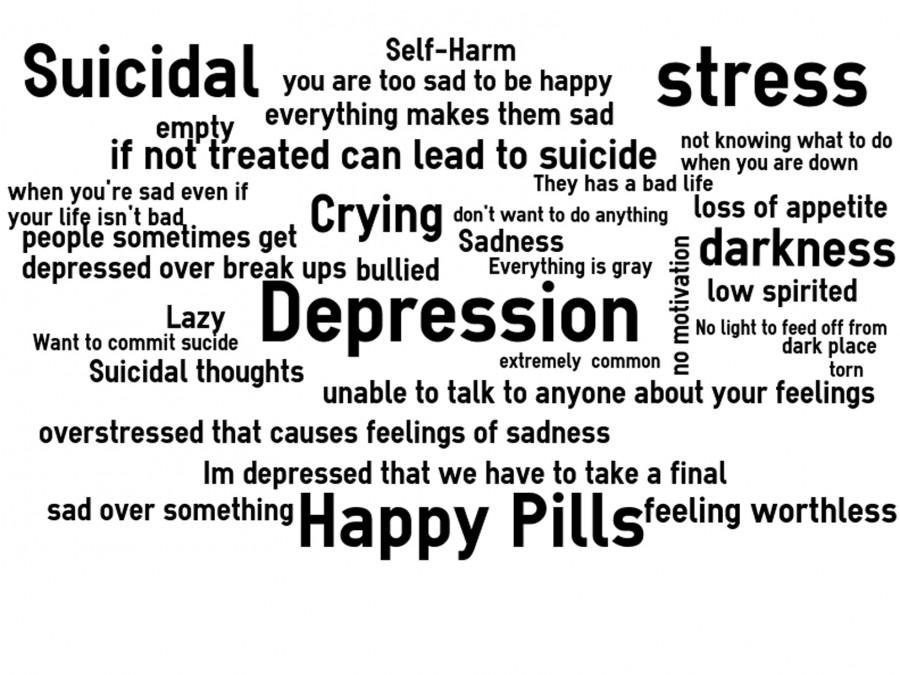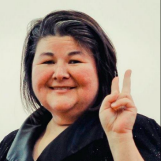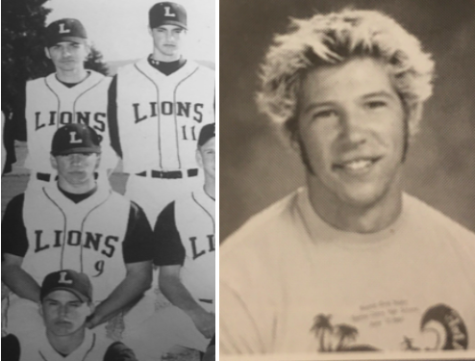Mental Illness Perceptions: Survey and Response
One in four people are diagnosed with a mental disorder each year in the United States, that is roughly 57.7 million people. If we are so widely effected by mental disorders as a whole, it is reasonable to say we should try to understand them a little better. Lion Tales was curious as to how much kids on our campus knew about a couple of the mot common disorders.
A survey was conducted in one class of each grade level at Lincoln High. The questions in the survey called for the participants to define the words depressed, anxiety, and OCD, and were asked to use each word in a sentence. From this survey the baseline of general knowledge was drawn and this article was written in an effort to raise awareness of mental illness by giving a better understanding of the disorders.
Lincoln students closely associated breakups or having to take final exams to something to be depressed about. There is a common misconception of the word “depressed” what it is caused by, and how it affects those who have it. The main similarity in the way Lincoln students viewed depression is that depression, is a temporary feeling caused by something traumatic and or upsetting. But what needs to be understood about depression is that some people who are diagnosed with clinical depression don’t all have to experience a traumatic event to be depressed. There is such thing as a chemical imbalance in your brain.
There is an enzyme called MAO-A that breaks down chemicals such as serotonin, serotonin is said to relay information from one side of the brain to the other. When there is a surplus of MAO-A enzymes it leads to more breakdowns of serotonin. When that happens it is said to be a main cause of depression, Serotonin is known to be the main neurotransmitter; 40 million brain cells are affected by serotonin. These include things like sleep, appetite, mood, memory, and learning. People easily become clinically depressed with the imbalance in their normal behaviors leaving them feeling a sadness with no exit.
For everyone their experience with depression can be different. For some their sleep is either close to none and may cause insomnia, or they might feel like very tired all the time and sleep all day.
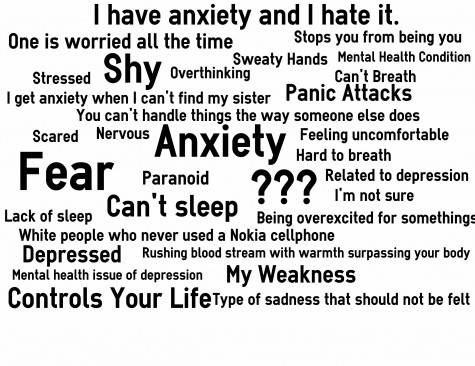
The main common misconception about anxiety we found through our survey that most thought anxiety consists of having panic attacks. There is indeed a difference between panic attacks and anxiety attacks. Panic attacks are an unexpected surge of worry feeling you are going to die or that you are going crazy. Panic attacks have no triggered reason it is spontaneous and can lead to a panic disorder. Anxiety attacks on the other hand are triggered by a stressor. For example, you are walking down long dark path and hear footsteps and you begin to feel fearful and your heart is racing, but the anxiety attack will go away once the stressor is removed. As well as there are more frequent cases with triggers that is, if one is placed in a situation and in that same situation or place they always get an anxiety attack. For example traumatic events in one’s life can be a leading cause to these triggers for anxiety attacks.
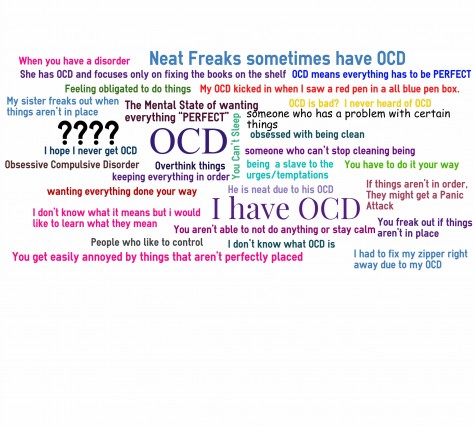
Everyone thinks OCD is about being a neat freak, but there’s more to that. OCD really is an anxiety disorder characterized by uncontrollable, unwanted thoughts and reprieve, ritualized behaviors you feel compelled to perform. OCD can be developed in any time of life, when you are young or older. OCD is caused by a Serotonin, a chemical in the brain that sends messages between brain cells. Students at Lincoln don’t really know a lot about Obsessive Compulsion Disorder, they mostly wrote about the obsession of symmetry and exactness.
Different types of obsessions, when talking about this medically, are: causing harm by accident, sexual obsession, and symmetry and exactness. Some different types of compulsions are washing and cleaning, repeating, and mental rituals. Sexual Obsession is the form of worry about becoming or being gay. The obsession of causing harm by accident is the fear that harm will come to loved ones or others will be harmed. For example, the fear of accidentally hitting a pedestrian while driving or calling your family to assure they are not harmed. The compulsion washing and cleaning is the most known, but mental rituals is the most understudied. Mental rituals is repeating silent prayers, replacing “bad” thoughts with “good” thoughts.
These three disorders are very commonly used by teenagers to express their in-the-moment feelings. From the survey we got these responses for the section of the survey asking to used each word in a sentence. “I was so OCD about my hair, it had to look perfect for my date,” one respondent said. Another said “I don’t like my outfit it’s giving me anxiety,” while another stated “our football team didn’t make it to playoffs, I’m so depressed.”
These illnesses are used as descriptor words and most of the time people say them with ease, but for someone who has one of these disorders know it is not as easy to just brush off the feeling that depression, OCD or Anxiety can cause.
It is important to realize that for some people it is a reality. When people use illnesses as descriptive words it can be viewed as overdramatic on their part and maybe even hurtful. Awareness needs to be raised about mental illness because you might know someone who is fighting it silently.
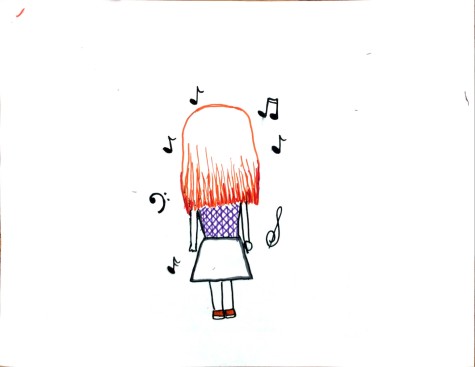
Natalie Guevara has lived all her life in San Jose, California. She is the youngest of two; born to two immigrants, one from Mexico, one from El Salvador....

